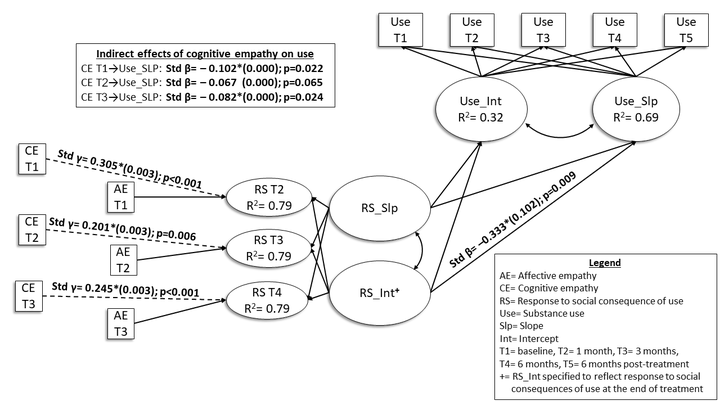Adolescent Substance Use Outcomes in Response to Social Consequences of Use: The Role of Empathy

Abstract
Evidence suggests empathy deficits have a temporal relationship with substance use severity by late adolescence theorized to decrease use via recognition of social consequences. However, this has yet to be tested empirically along with differences in cognitive and affective empathy. Adolescents admitted to substance use treatment (n = 3382) were followed through treatment and 12 months after treatment. Variable trajectories were fit using growth curve models; and cross-lagged effects of cognitive and affective empathy (interpersonal reactivity index) on response to social consequences of use were tested along with how response to social consequences affected the mean trajectory of substance use. Results indicate higher cognitive empathy predicted a greater response to social consequences of use and response to these consequences at the end of treatment predicted a steeper decrease in substance use. This evidence highlights the importance of cognitive empathy for responding to social consequences of use for motivating less adolescent substance use.
Citation:
Winters, D. E., Massey, S. H., & Sakai, J. T. (2023). Adolescent substance use outcomes in response to social consequences of use: the role of empathy. Journal of Drug Issues, 00220426231159303.